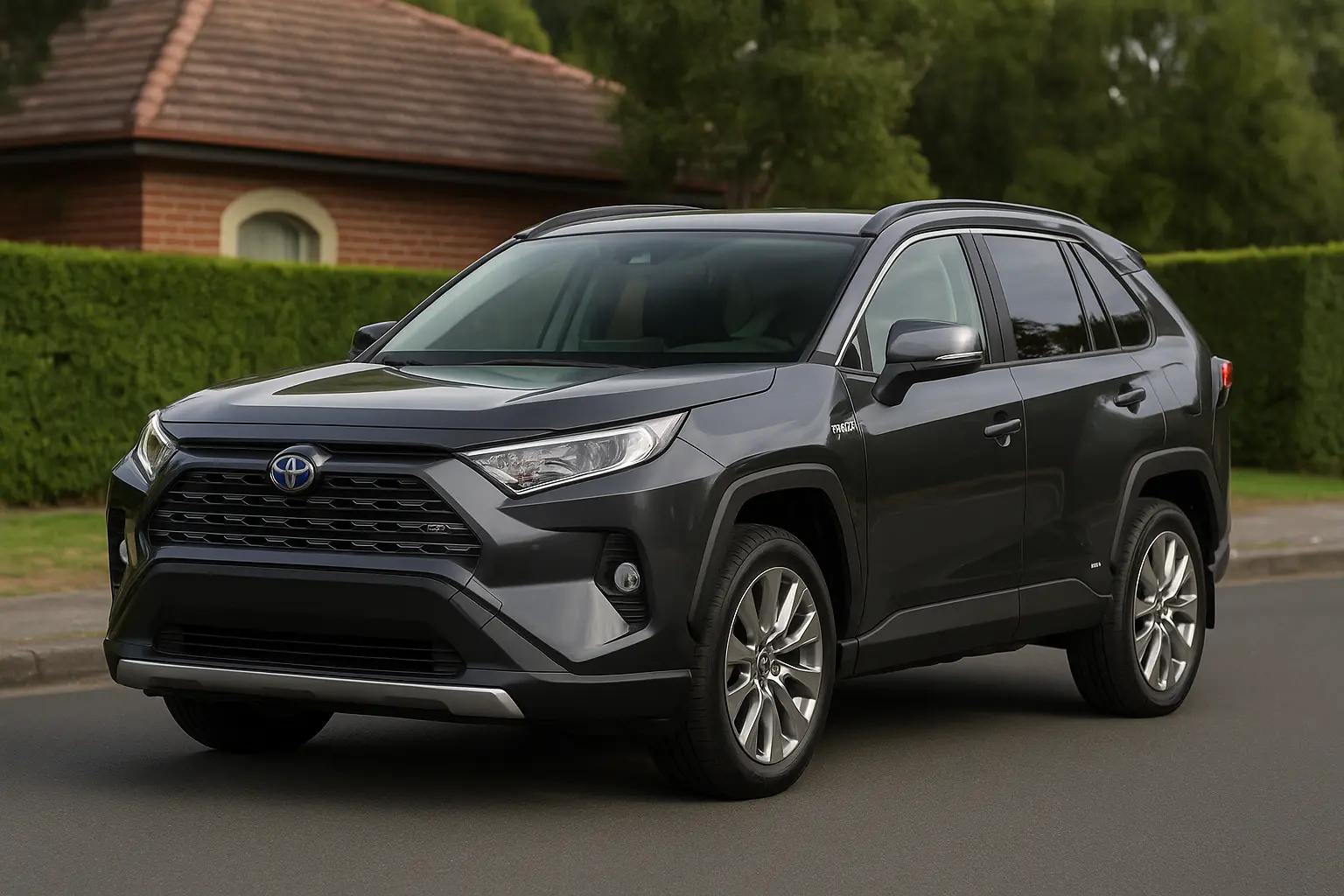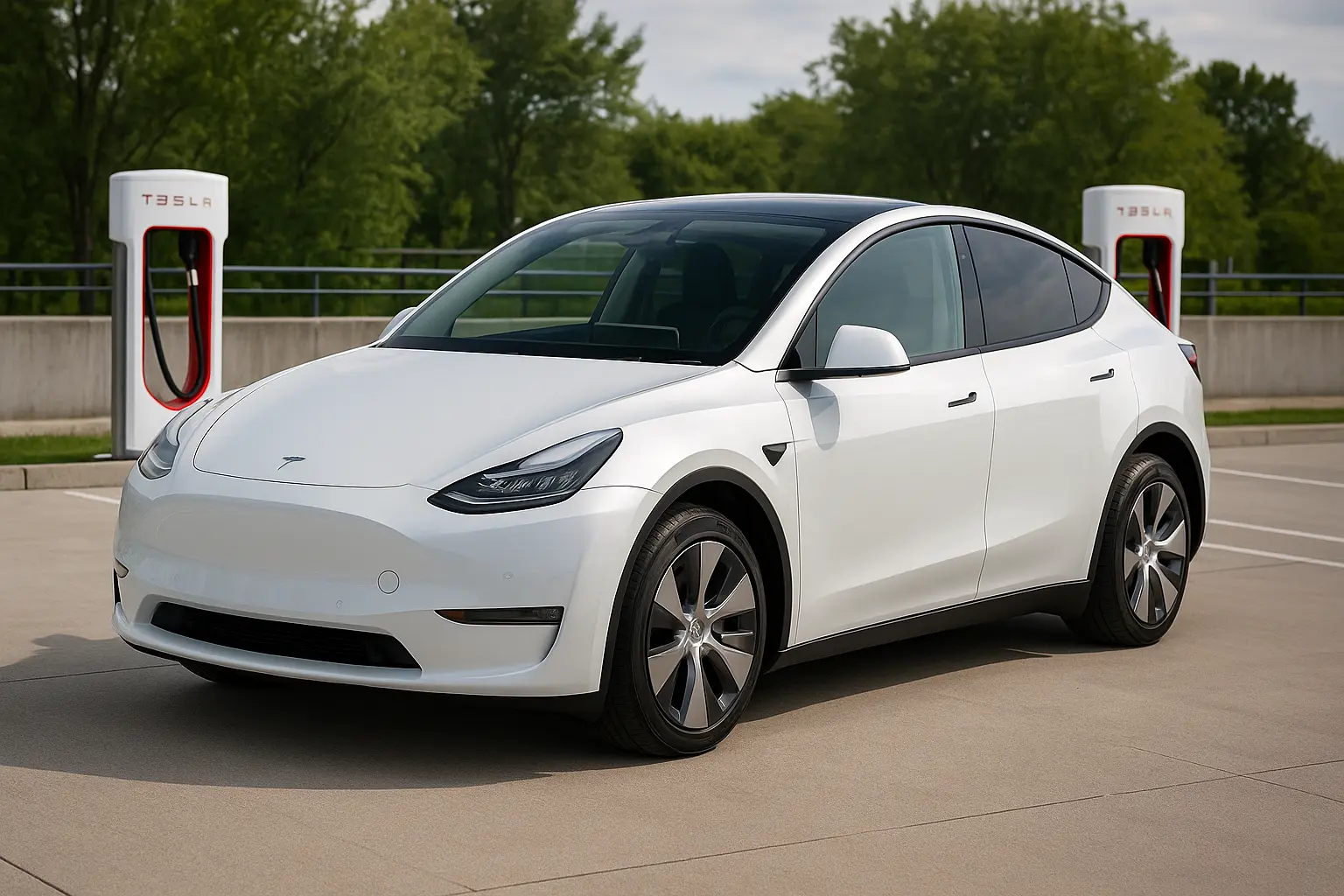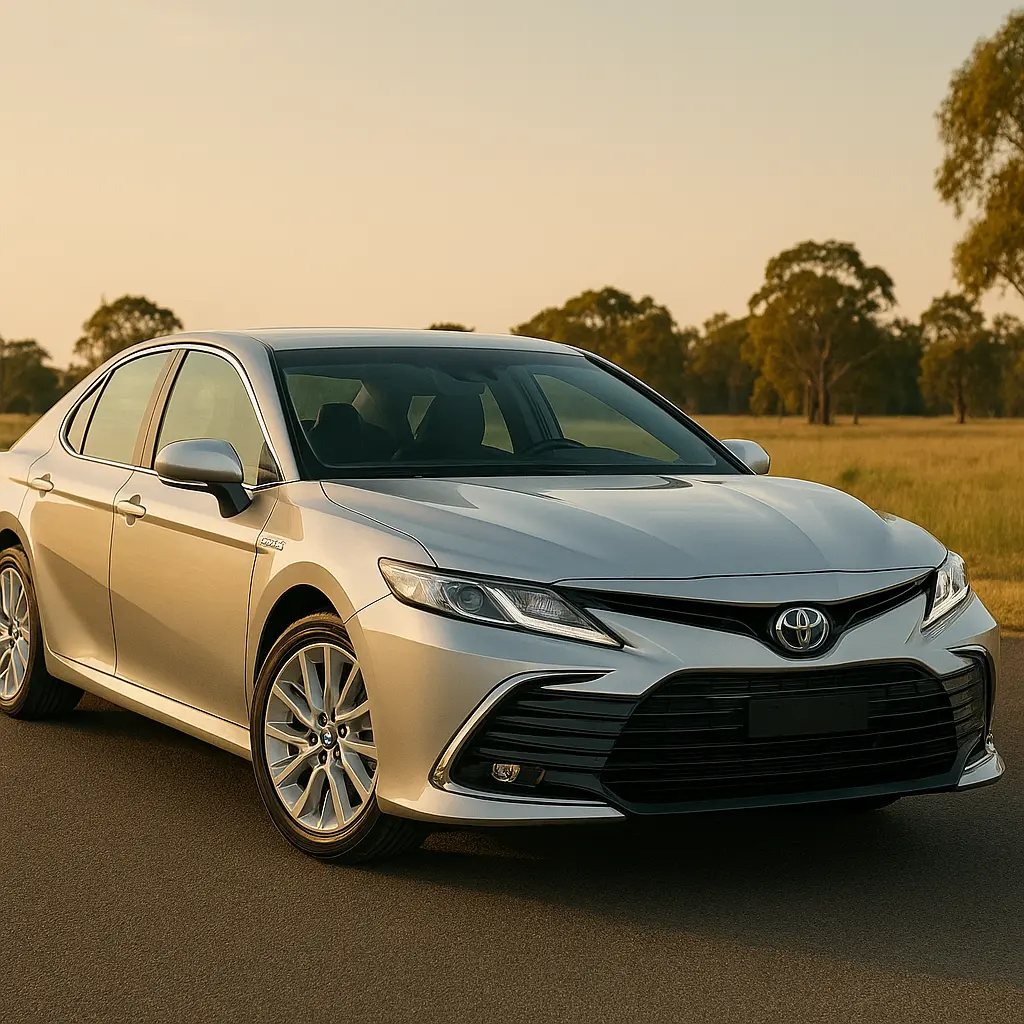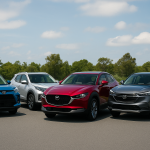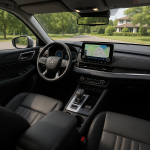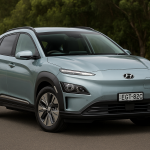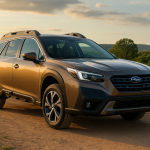Australia’s love affair with SUVs is no secret. From city streets in Sydney to the rugged stretches of the outback, SUVs have become the family vehicle of choice. But as fuel prices rise and environmental awareness grows, more families are turning toward hybrid SUVs. These vehicles promise the spaciousness and versatility of an SUV, combined with the fuel-saving benefits of hybrid powertrains.
For families, hybrid SUVs tick multiple boxes: safety, reliability, tech, comfort, and efficiency. They are particularly suited to school runs, weekend trips, and long holiday drives across Australia’s diverse terrain. In 2025, the market for hybrid SUVs is more competitive than ever, with models from Toyota, Kia, Hyundai, Mitsubishi, and luxury marques like Lexus offering standout features.
This guide explores the top hybrid SUVs for families in Australia—focusing on efficiency, safety, comfort, and value—helping you find the right match for your lifestyle.
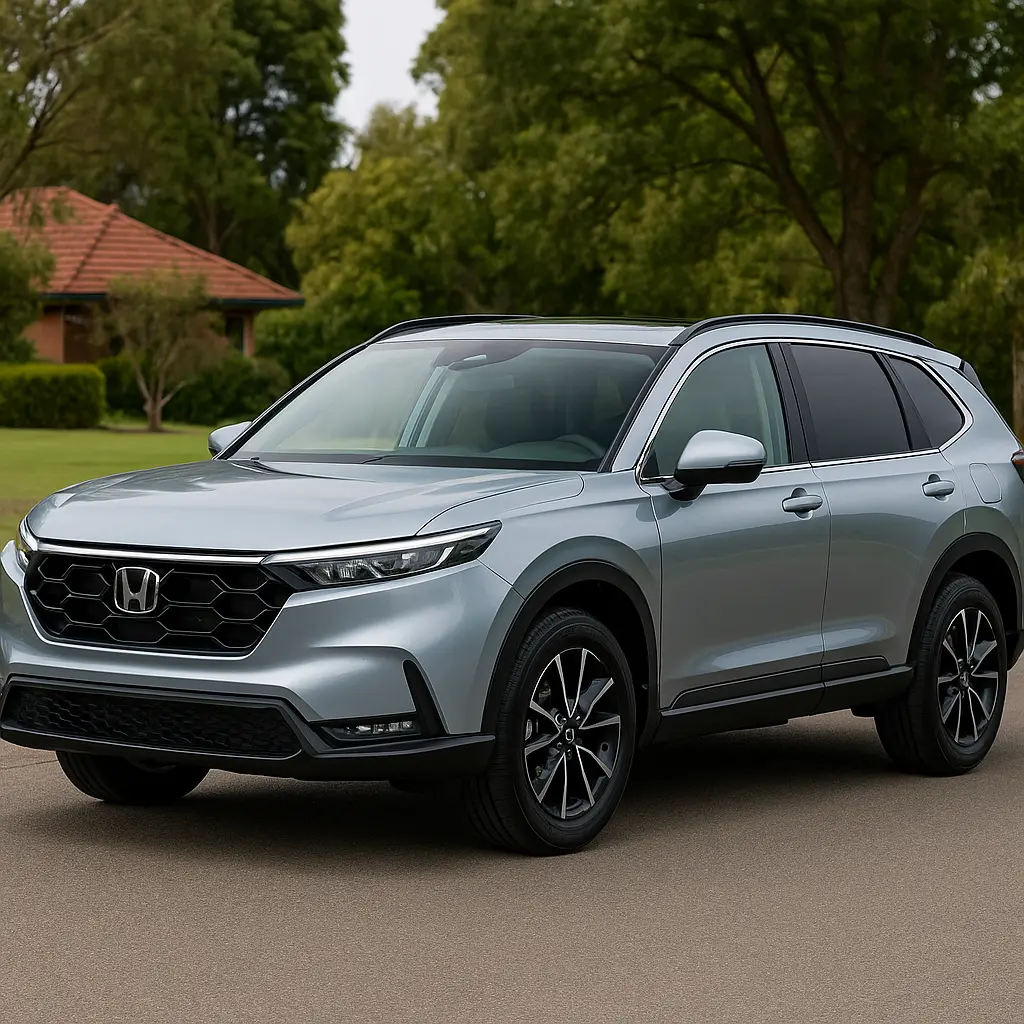
The Rise of Hybrid SUVs in Australia
Hybrid SUVs are bridging the gap between traditional petrol engines and fully electric vehicles. Many Australian families remain cautious about EVs due to limited charging infrastructure, especially outside metro areas. Hybrids offer a smart compromise: petrol backup for longer drives and electric support for city commutes.
Key Benefits Driving Popularity:
- Fuel Savings: Hybrids use electric assistance to cut down fuel usage, crucial with petrol prices fluctuating.
- Lower Emissions: Perfect for eco-conscious families looking to reduce their carbon footprint.
- Practicality: Unlike EVs, there’s no range anxiety—simply refuel at any servo.
- Resale Value: Hybrids are increasingly in demand, holding value better than pure petrol SUVs.
What Families Look for in a Hybrid SUV
Before diving into the top models, let’s break down the core needs of families:
- Space & Seating Flexibility: Families often need ample boot space, split-folding rear seats, and in some cases, seven-seat options.
- Safety: Features like AEB (Autonomous Emergency Braking), lane-keeping assist, and top ANCAP ratings are non-negotiables.
- Fuel Efficiency: The promise of fewer servo visits is a major appeal.
- Comfort & Tech: Long trips call for infotainment, climate control, and roomy interiors.
- Affordability & Value: From budget-friendly Toyota hybrids to premium Lexus options, cost considerations vary.
Best Hybrid SUVs for Families in Australia 2025
Here’s an in-depth look at the most family-friendly hybrid SUVs available in Australia right now.
Toyota RAV4 Hybrid
The Toyota RAV4 Hybrid is Australia’s best-selling hybrid SUV and with good reason. It offers an unbeatable combination of fuel economy, safety, and practicality.
Why Families Love It:
- Fuel Economy: Around 4.7L/100km, making it one of the most efficient SUVs in its class.
- Space: Huge boot and rear seats spacious enough for teenagers.
- Tech: Smart infotainment system, Apple CarPlay/Android Auto, and advanced driver-assist tech.
- Reliability: Toyota’s reputation for long-lasting vehicles reassures buyers.
The RAV4 also comes in AWD, which is handy for weekend getaways or country trips. It remains the benchmark family hybrid SUV in Australia.
Kia Sorento Hybrid
For larger families needing seven seats, the Kia Sorento Hybrid delivers practicality with efficiency.
Highlights:
- Seven-Seat Capability: Rare among hybrids in this price bracket.
- Interior Luxury: Soft-touch materials, modern infotainment, and wireless charging.
- Safety: 5-star ANCAP safety rating and advanced driver aids.
- Efficiency: Around 5.3L/100km, impressive for a vehicle of this size.
The Sorento Hybrid offers a balance of efficiency and versatility, making it one of the top picks for bigger Aussie families.
Hyundai Santa Fe Hybrid
Closely related to the Sorento, the Hyundai Santa Fe Hybrid provides similar benefits but with its own styling and slightly different feature sets.
Why It Works for Families:
- Practical Design: Comfortable seating for up to seven.
- Fuel Economy: Around 6.0L/100km in real-world use.
- Technology: Large infotainment screens, multiple USB ports, and clever cabin storage.
- Warranty: Hyundai’s generous warranty offers peace of mind.
The Santa Fe Hybrid suits families who want a blend of sophistication and practicality without stepping into the luxury segment.
Mitsubishi Outlander Plug-in Hybrid (PHEV)
For families wanting more electric driving without fully committing to an EV, the Outlander PHEV is a standout.
Family Advantages:
- Electric Range: Around 80km on pure electric power—ideal for school runs and city commutes.
- Versatility: Available in five or seven-seat layouts.
- Safety & Features: Excellent safety package and modern infotainment.
- Fuel Efficiency: Around 1.5L/100km if charged regularly.
The Outlander PHEV is a game-changer for families who want to reduce petrol use but need flexibility for road trips.
Lexus RX Hybrid
Families seeking luxury can look to the Lexus RX Hybrid. It combines efficiency with comfort and premium features.
Standout Features:
- Luxury Cabin: Plush leather, ambient lighting, and advanced infotainment.
- Quiet Drive: Hybrid system delivers near-silent operation in urban traffic.
- Safety Tech: Lexus Safety System+ covers all driver-assist bases.
- Efficiency: Around 5.7L/100km, competitive for a luxury SUV.
For families that value refinement and brand prestige, the RX Hybrid is a clear contender.
Toyota Kluger Hybrid
The Toyota Kluger Hybrid is another strong choice for families needing seven seats.
Key Highlights:
- Practicality: Spacious interior with three rows of seats.
- Efficiency: 5.6L/100km is impressive for a full-sized SUV.
- Toyota Safety Sense: Comprehensive driver assistance suite.
- Reliability: Backed by Toyota’s strong track record.
For those who want RAV4-like efficiency in a larger package, the Kluger Hybrid is hard to beat.
Honda CR-V Hybrid (2025 Model)
The all-new Honda CR-V Hybrid enters the Aussie market in 2025 with family appeal.
Highlights:
- Efficiency: Expected to return figures around 5.0L/100km.
- Space: Class-leading interior room and generous boot.
- Tech: Advanced infotainment and connectivity features.
- Honda Safety: A full suite of safety tech ensures peace of mind.
The CR-V Hybrid looks set to be a strong alternative to Toyota’s dominance.
Mazda CX-60 Plug-in Hybrid
Mazda’s first plug-in hybrid SUV, the CX-60, brings style and premium features.
Why It Appeals to Families:
- Performance: Strong acceleration thanks to the hybrid system.
- Luxury Touches: Premium interior materials and elegant design.
- Efficiency: Around 2.1L/100km when charged regularly.
- Safety: 5-star ANCAP rating with advanced features.
While not the cheapest, it appeals to families seeking something stylish and modern.
Comparing Hybrid SUVs for Families
When comparing these SUVs, consider family priorities:
- Best for Efficiency: Toyota RAV4 Hybrid, Mitsubishi Outlander PHEV
- Best for Large Families: Kia Sorento Hybrid, Hyundai Santa Fe Hybrid, Toyota Kluger Hybrid
- Best for Luxury: Lexus RX Hybrid, Mazda CX-60 PHEV
- Best All-Rounder: Toyota RAV4 Hybrid
Fuel Efficiency in Real-World Aussie Conditions
While manufacturer claims often look impressive, real-world driving in Australia—whether city traffic in Melbourne or road trips up the Gold Coast—affects efficiency. Plug-in hybrids (like the Outlander and CX-60) are most efficient when charged daily. Standard hybrids (RAV4, Sorento, CR-V) deliver savings without needing charging stations.
Safety First: Why It Matters for Families
All the models discussed feature strong ANCAP ratings and advanced driver-assist systems. Key safety must-haves include:
- Autonomous Emergency Braking
- Adaptive Cruise Control
- Lane Departure Warning
- Blind Spot Monitoring
- Rear Cross-Traffic Alert
For parents, these features aren’t luxuries—they’re essential.
Tech & Comfort: Keeping Families Happy on the Road
Modern hybrid SUVs offer family-friendly tech such as:
- Multiple USB ports for kids’ devices
- Wireless Apple CarPlay/Android Auto
- Rear-seat entertainment options (in premium models)
- Tri-zone climate control
- Smart storage solutions for snacks, bags, and gear
Cost of Ownership: Insurance, Warranty & Maintenance
Hybrids may cost more upfront but deliver savings in the long run. Key ownership factors:
- Insurance: Typically slightly higher premiums than petrol-only SUVs, but offset by lower fuel bills.
- Warranty: Hyundai, Kia, and Mitsubishi lead with long warranties (up to 10 years in some cases).
- Maintenance: Hybrid servicing is straightforward, with most brands offering capped-price service plans in Australia.
Are Hybrid SUVs Worth It for Families?
Yes—especially for families balancing urban driving with weekend getaways. They deliver fuel savings, strong safety, and comfort, without the range limitations of EVs. For those hesitant about going fully electric, hybrids represent a smart middle ground.
Conclusion: Choosing the Right Hybrid SUV
From the tried-and-tested Toyota RAV4 Hybrid to the versatile Kia Sorento Hybrid and the luxurious Lexus RX, there’s a hybrid SUV for every Aussie family in 2025. The right choice depends on family size, budget, and driving patterns.
If efficiency is your main goal, the RAV4 Hybrid is unmatched. For large families, the Sorento, Santa Fe, or Kluger deliver space with savings. For luxury seekers, Lexus and Mazda shine. And for those ready to embrace more electric driving, the Outlander PHEV offers the best of both worlds.
Whichever path you choose, hybrid SUVs prove that Australian families no longer have to compromise between comfort, efficiency, and practicality.
Leave a comment
Your email address will not be published. Required fields are marked *


